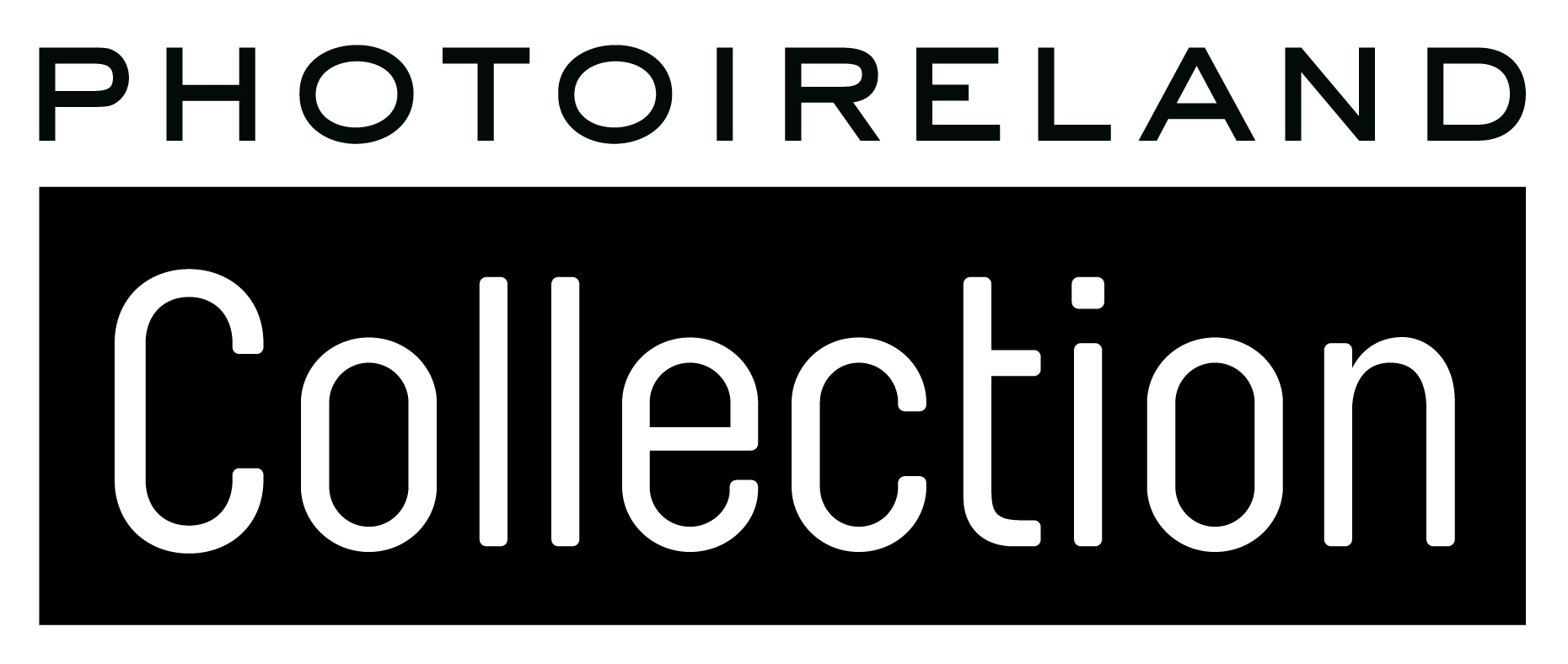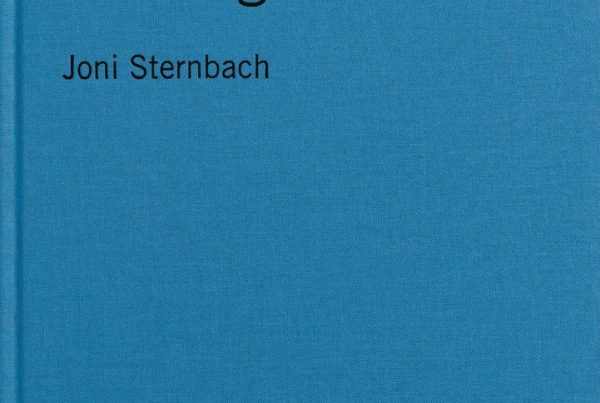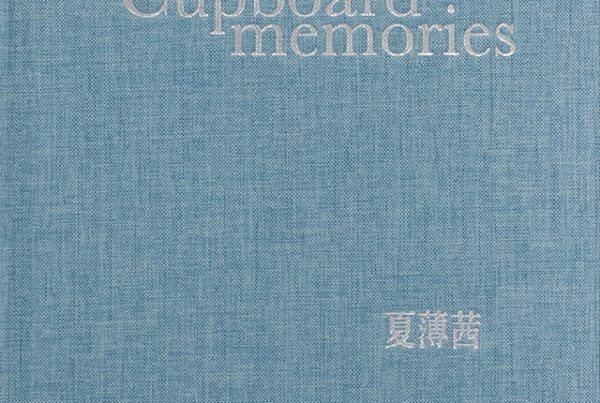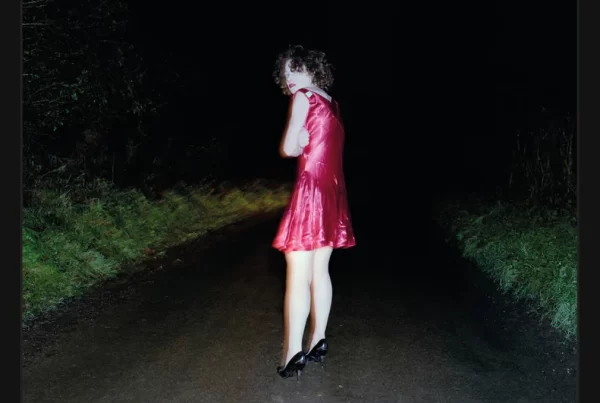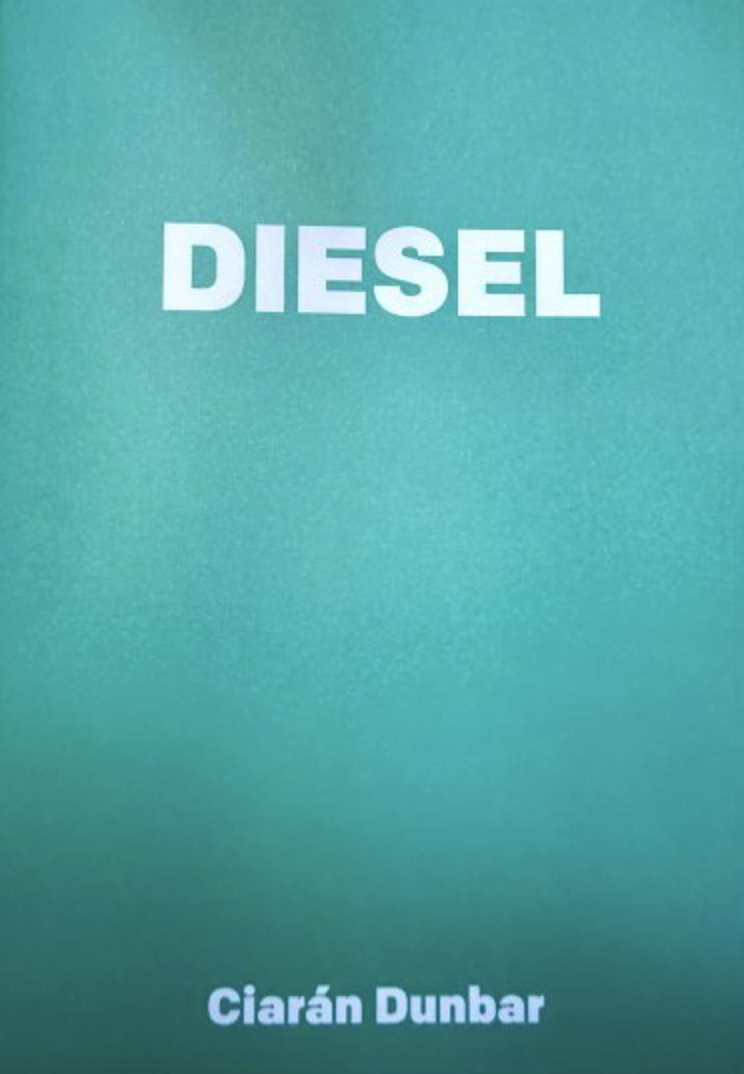
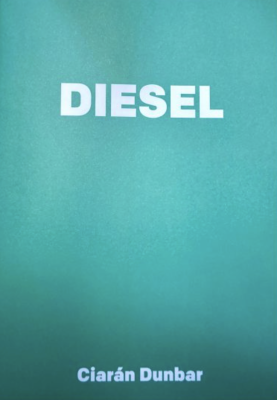 Diesel
Diesel
Ciarán Dunbar
Self-Published
English
Softcover (signed)
First Edition of 250
52 pages
240 x 330 mm
2022
ISBN Not Available
Diesel traces the illegal dumping of toxic waste material, commonly referred to as ‘sludge’, by diesel launderers at sites along the Irish border between Counties Louth, Armagh and Down. Agricultural diesel, intended for off-road agricultural use, costs about 50c less per litre than regular car diesel. Agricultural diesel is dyed (green in the South and red in the North) so as to distinguish it from auto diesel. Early dye removal processes involved pouring diesel from an oil drum into an upside down traffic cone filled with nappies which would adsorb the dye. Other methods involved cat litter and more recently acids. In the 1980s and 1990s this border region lost many of its traditional manufacturing industries such as shoemaking (Clarkes), tobacco (PJ Carrolls) and brewing (Harp, McArdle and Moore), and saw the end of railway freight trade. The economic downturn, combined with the impact of the ‘Troubles’, has helped this illegal industry to thrive. The issue of diesel laundering is one that nobody wants to talk about – it is seen as a necessary evil. Diesel laundering provides cheap fuel and creates employment and opportunities in the area. Plant closures, illegal dump-sites and contaminated waterways are reported, but then immediately forgotten. Diesel laundering plants range in size and sophistication, laundering anywhere between 6 and 30 million litres of fuel per year. Between 2008 and 2015, Louth County Council spent €5 million cleaning up 596 dump sites. Apart from the environmental impacts, it was estimated that in 2015 diesel laundering cost the Exchequer approximately €239 million, with the total loss to the national economy in the region of €435 million.
(source: https://ciarandunbar.com/diesel)
About the Artist
Ciaran Dunbar (b. 1982) in Dundalk, Ireland, where he currently lives and works. He gained a BA in Photography from the University of Ulster, Belfast, in 2013. Having escaped The Troubles in the 1980s, Dunbar’s parents, originally from the north of Ireland, settled in Dundalk. It is here, against the backdrop of this border town, that issues of identity, displacement and belonging have become the focus of Dunbar’s work to date. His project Diesel traces the illegal dumping of toxic waste material, commonly referred to as ‘sludge,’ by diesel launderers at sites along the Irish border between Counties Louth, Armagh and Down. Diesel laundering plants range in size and sophistication, laundering anywhere between 6 and 30 million litres of fuel per year. His work has been featured in Gallery of Photography Ireland’s 5-year Reframing the Border programme exploring creative responses to the border, which culminated in a series of public art installations along the border marking the Centenary of Partition in 2021. He was awarded a Galleries Without Walls collaborative commission which culminated in a ground-breaking NFT programme organised by Gallery of Photography Ireland, Regional Cultural Centre, Letterkenny and the Museum of Crypto Art.
ciarandunbar.com
(source: https://www.photobooks.site/product/diesel-by-ciaran-dunbar/)
